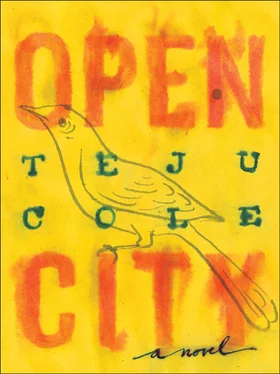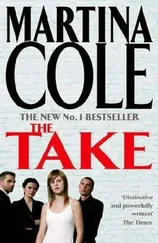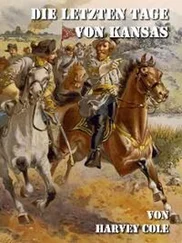Dr. Campbell’s report superficially conformed to the period style for a medical bulletin, but it drew its real power from a gradual accumulation of assertions, which created an intense and oppressive image of the creature under study. One of the characteristics of the bedbug, Campbell wrote, is its cannibalistic nature. He presented evidence that engorged bugs were sometimes slit open and consumed by their young. He also described a half dozen experiments he had carried out, ostensibly in the interest of scientific research but which gave the impression of an obstacle course designed to prove the bedbug’s hardiness and intelligence. Campbell would have been disappointed, I felt sure, had the bedbug failed to pass any of the trials he put it through.
In the experiments, bedbugs survived four months of isolation on a table in a sea of kerosene without food, they came through a deep freeze lasting 244 hours without being harmed, and were able to remain alive underwater for an indefinite period of time. The cunning of these insects, an awed Campbell wrote, is remarkable, and it appears that they have, to a certain extent, the power of reasoning. He described an experiment by Mr. N. P. Wright of San Antonio—“a very reliable citizen and close observer”—in which, as Wright moved his bed farther and farther from the sides of the room, the bedbugs climbed up the wall to the precise height from which they could jump and land on him. When he moved his bed closer, the bugs climbed only as high as was necessary. Campbell’s report included a number of stories of this kind, in which bedbugs demonstrated a certain ingenuity in reaching a bed to which their access had been blocked.
I thought of the bugs in their countless millions in all the five boroughs of the city, of their invisible eggs, of their appetite, which was greatest at the hour before dawn. The problem began to seem less and less a scientific one, and I came to share Campbell’s unease. The concerns were primeval: the magical power of blood, the hours given over to dreams, the sanctity of the home, cannibalism, the fear of being attacked by the unseen. My rational self was dismayed at these glib analogies, at this unexpected surrender to the kind of insecurity I mocked in others. Nevertheless, when I was done reading, I unmade my bed, switched off the lights, and, kneeling down, carefully examined the seams of the mattress with a flashlight. I found nothing, but of course this did not in itself guarantee a restful night.
There had been a bombing at the biggest pet market in Basra, and the scene was filled with the feathers of parakeets, the cries of dying animals, blood-streaked debris, a mangled engine, a destroyed chair, and cages twisted as though they were made of twine. On the radio, the secretary of state began to discuss an upcoming offensive in the Shiite-controlled area of Baghdad. I went to the pet market and saw the carcasses of dogs lying next to human corpses. Women in black gowns cried and beat their breasts. There was one father who, dead, continued to clutch the vial of insulin he had been trying to take home to his daughter. I became very tired; tired unto death was the phrase that scrolled across my mind. I was in my white coat, and my tie was loosened at the neck. My mother was in the pet market. She wore a burka, and Nadège was there with her, wearing the same. My mother asked, What is worse than the bombs? Nadège said, Bedbugs! The two spoke to each other in Yoruba. My mother said, Listen to your sister, Julius. I was about to correct her.
It was one in the morning, and I had fallen asleep in my clothes. I undid my tie and changed, and drank water from the glass on the side table. Before I fell asleep, I had been reading the prologue of Piers Plowman . Of its long, alliterative descriptions, all I now retained was the image of William Langland wandering around the world, seeing the various work and struggle of humanity, then settling on one of the Malvern Hills and looking at a brook. He became drowsy, “slumbered into sleep,” and in his dreams a magical vision of reality appeared to him, and it was just as I began to read that section that I had fallen asleep.
The light of a streetlamp trembled from behind the curtains. I was hungry but had no appetite. There was a pork chop in the fridge and, as I ate it, standing with the fridge door open, the siren of an ambulance went by in the night. I opened the window, and the air entered in a single gust, as though it had been waiting for admission. The pulsing in my mind matched the flickering pattern of the streetlamp against the curtain. Below, the world was bare, and showed little sign of Langland’s “fair field full of folk.” I took two acetaminophen and went back to sleep. The following day was the Saturday of a call-free weekend, and I could sleep in, untroubled by dreams. When I awoke, I decided I would run errands and, if the day was right for it, visit the old professor later in the afternoon.
THE DOORMAN IN HIS BUILDING USHERED ME IN. THE ELEVATOR was humid and smelled of sweat. Mary, heavily pregnant, let me into the apartment. Everything was dark and gray inside. He’s very sick, she said. He’s in the bedroom, come this way, he’ll be happy to see you. But when we got there, I saw a man darken the door and go inside ahead of me. He was the doctor. Mary signaled me to wait. I went into the living room and sat down, under Dr. Saito’s ring of Polynesian masks. I could hear voices from the bedroom. When the doctor came out, he had a genial expression. His face creased in smiles as he nodded at me and left. I went inside to see Professor Saito, who lay huddled on the bed, tiny and white and weaker than I had ever seen him. His eyes, though they were rheumy and almost closed, were the only part of him that seemed fully there. His voice seemed to be coming not from his mouth, which in any case moved little, but from somewhere else in the room. The timbre was pinched, and he took many breaths. Nevertheless, he spoke lucidly.
Ah, yet another doctor is here, he said. I feel popular. But, Julius, I don’t know what you do in Africa, but I must say, I’m ready to go into the forest. I am ready to go in. It is time for me to enter the forest and lie down, and let the lions come for me. I’ve done enough, I think, I’ve had a good life, and I’m in such terrible pain just now. Who might say ninety years is not enough? It is time. I sat down next to him and held his small, cold hand in mine. He was tired, and I left him, so that he could rest. I told him I would return soon.
Later that day, not wishing to be alone with the image of Death hovering in the room with its cheap suit and bad manners, I called my friend, and went over to his place. His daughter, a bright nine-year-old named Clara, who otherwise lived with her mother, was visiting. But she’s out wandering, he said. His living room had two windows, one west, facing onto Amsterdam Avenue, the other south into a small courtyard, boxed in on all four sides by brick, concrete, and by the small windows of his neighbors’ apartments. Those windows lit up one after the other with warm evening lights. There was a tall tree in the middle of the otherwise empty courtyard, bare and with a dense network of branches. I doubted that it got much sunshine, but it looked healthy enough.
That’s a tree of heaven, my friend said. I know because I, too, got curious about it, and looked it up. Botanists call it an invasive species. But aren’t we all? Once, down in the courtyard, I got a smell quite similar to coffee from one of the broken-off branches. The species was first brought over from China a long time ago, in the 1700s, I think, and apparently it liked American soil so much that it grew freely and wildly in almost every state, often displacing native species.
Читать дальше












